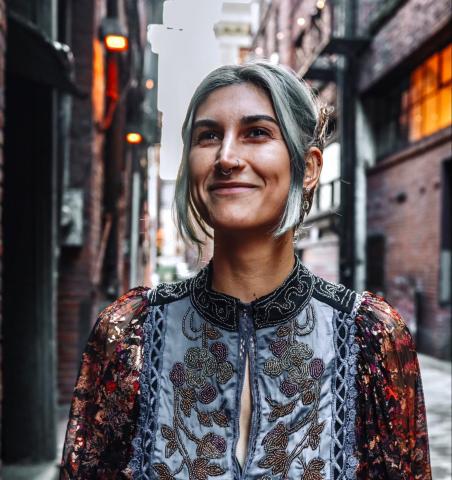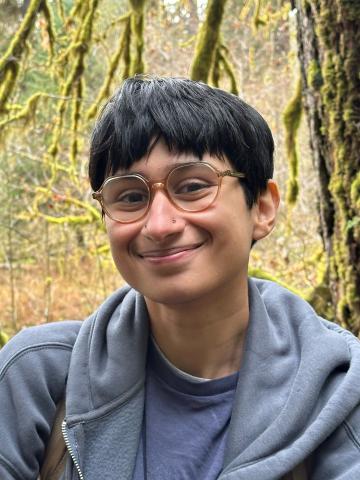Announcing 2025-2026 Graduate Labor Research Grant Recipients
Each year, the Harry Bridges Center for Labor Studies awards thousands of dollars in research funding to University of Washington graduate students and faculty. Since 1992, the Center has awarded over one hundred grants, producing dozens of reports, books, articles, and more. We are pleased to announce the recipients of Labor Studies graduate student research funding for the 2025-2026 academic year.
|
Allison Clonch, PhD candidate, Department of Environmental and Occupational Health Sciences Assessing Gender-Based Violence and Mental Health Among U.S. Mariners Clonch’s research comprehensively investigates the occupational factors influencing the mental health and well-being of U.S. mariners. Responding directly to industry calls for solutions to build a resilient and sustainable maritime workforce, a cross-sectional survey administered to U.S. mariners will quantitatively assess the relationship between occupational stressors, including adverse interpersonal experiences like bullying and harassment, and mental health outcomes. |
|
Chase Puentes, PhD candidate, Department of Geography Women's Nikipiaq Project The Kivalina Women's Nikipiaq Project is a community-based, feminist Indigenous research initiative that examines and uplifts the labors of Indigenous women in the Inupiaq village of Kivalina, Alaska related to nikipiaq (native foods). Through an interdisciplinary methodology prioritizing relationality and ethical engagement, this project documents, supports, and shares knowledge about the significant yet historically undervalued contributions of Inupiaq women to sustaining community well-being, food sovereignty, environmental adaptation, and cultural practices. |
|
Ragya Kaul, PhD candidate, Department of History Jhaijis Against Empire: Early South Asian Women's Migration to North America Tracing the journeys of South Asian women who travelled to the United States and Canada four decades before World War II, this project explores how women created infrastructures for diasporic anticolonial struggle against British colonial annexation of South Asia through overlooked reproductive and care labor. Centering women reveals the shifting constructions of gender, race, caste, and class among colonial forces and Indians themselves. Political actors, colonial and anticolonial alike, used the image of the migrant “Indian woman” to advance diverging agendas. Recipient of the 2025-2026 Charles Bergquist Labor Research Grant |
|
Marielle Yambao Marcaida, PhD student, Department of Gender, Women & Sexuality Studies It Takes a Village: The Human Rights Activism of Mothers Under the Philippine Drug War Marcaida’s scholarship focuses on the struggles of urban poor mothers in the Philippines who have launched innovative justice campaigns against the extrajudicial murders of family members sanctioned by the former President Rodrigo Duterte’s “war on drugs” campaign. In this dissertation, Marcaida looks into the networks of the mothers leading grassroots initiatives that emerged as a reaction to the drug violence, a counteraction to the stigmatization of targeted populations, and a response to address the needs of their “neighborhood,” a theme that serves as the locus of inquiry in this research. |



